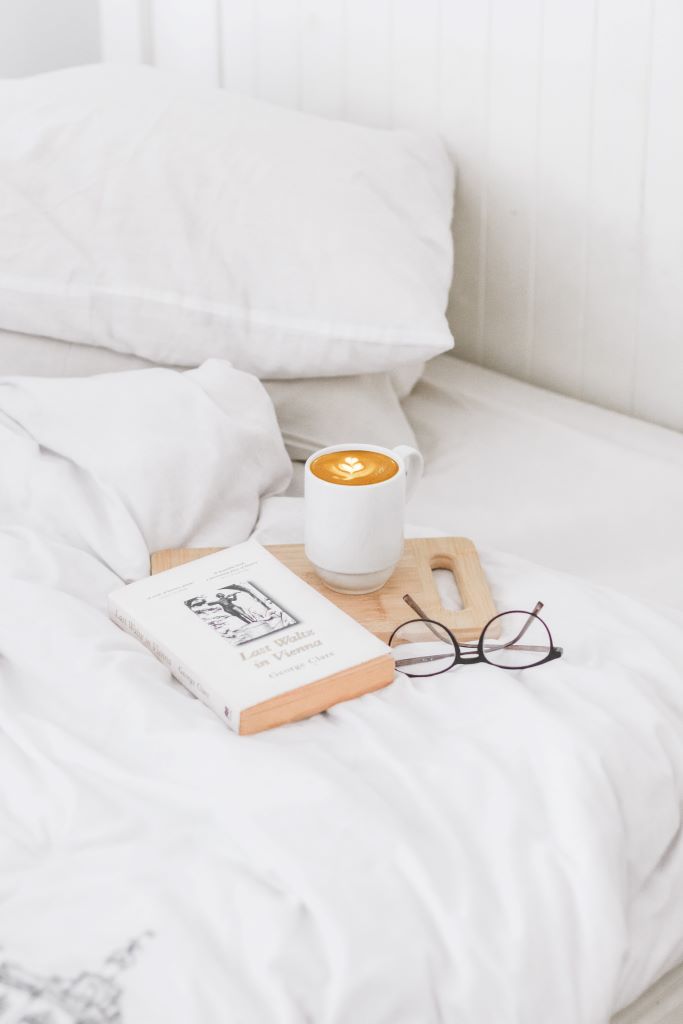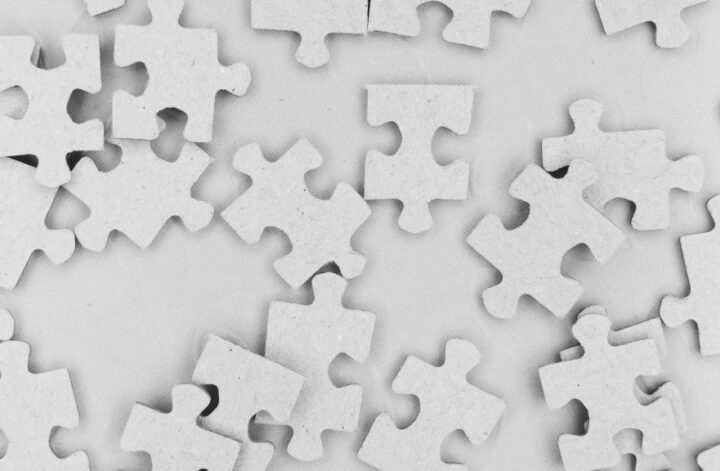Sleep is an essential part of our overall health along with nutrition and exercise. It allows us to recharge both our body and brain. When we have physical or mental health issues that cause us to have difficulty falling asleep easily or staying asleep for 7-9 hours each night, then our health is at risk.
Our sleep patterns change as we age. Lifestyle factors and existing health conditions can contribute to poor sleep, and sometimes our daily routine and habits compound these nightly disruptions.
The quantity of sleep hasn’t been a problem for me but I was waking up frequently during the night. When I noticed changes in the quality of my sleep I wondered if there was something I needed to change to get my much needed beauty sleep.
There are health risks associated with poor sleep. While all older adults have the potential to develop sleep disorders, women are more likely to do so.
If you feel like you aren’t getting the sleep you need there are some daytime and bedtime routines you might want to try.

Why sleep is important
Sleep is regulated by our individual sleep-wake balances and circadian rhythms and can be affected by both internal and external factors.
Chronic sleep problems can negatively affect day-to-day living but can also be the cause of physical and mental conditions. Even if you spend the recommended 8 hours a night in bed, you may not be getting adequate amounts of quality sleep.
Normal sleep patterns include varying stages of alertness: wakefulness, non-rapid eye movement (NREM including light and deep sleep states) and rapid eye movement (REM, intense dreaming).
During the different stages of sleep, a variety of restorative actions occur. Toxins that accumulate in the brain during the day are cleared. Memories are consolidated and new learning is integrated. Physical recovery occurs along with a strengthened immune system.
When sleep is uninterrupted we usually cycle through NREM and REM sleep stages every 90 – 120 minutes throughout the night. However, when your sleep cycles are interrupted the restorative benefits normally achieved during that particular stage are reduced or lost.
The most important stages of quality sleep are deep sleep and REM sleep. Generally, in healthy adults, 20% of sleep is deep sleep and 25% is REM. However, older adults spend less time in deep sleep resulting in less restful sleep.
The cause of sleep problems in older adults is associated with an inability to stay in NREM.
Factors Affecting Sleep for Older Adults
Changes in sleep patterns as well as pre-existing health conditions can be responsible poor sleep quality.
Certain lifestyle factors can contribute to poor sleep. Stress, grief, alcohol at bedtime and a lack of activity can all lead to difficulties with falling asleep and sleep disruptions. A lack of proper sleep can eventually become a sleep disorder perpetuating the cycle.
Sleep pattern changes can be caused by:
- Reduced production of melatonin, a natural hormone that regulates sleep
- Alcohol consumption
- Caffeine and nicotine
- Medications
- Pain
- Night time need to urinate
Changes in Sleep Patterns as We Age
Most adults over 60 years of age still need around 8 hours of sleep to feel rested. However, as we age our sleep-wake patterns change and those 8 hours are often disrupted. The quantity may be the same, but we get less restorative quality sleep and feel less refreshed when we wake.
Many older adults feel it takes longer to fall asleep as they age. Researchers found that healthy older adults were able to fall asleep as easily as younger adults but they were four times more likely to wake during the night.
Circadian rhythm changes start in middle age and continue to shift as we age. We get sleepy earlier in the evening and mornings become our best time for mental tasks.
Our natural inherent circadian rhythm tells us to become sleepy around 7-8 pm and to wake around 3-4 am. Most of us will adjust the time we go to bed but you may have noticed that you still naturally wake up at 3-4 am. You may or may not be able to go back to sleep.
Our bodies produce lower amounts of growth hormone (GH) as we age which is thought to be associated with a decline in the amount of deep sleep. However, one study shows that GH replacement or stimulation does not directly affect the amount of deep sleep.
Existing health conditions and sleep disorders that can cause sleep problems:
- Acid Reflux (GERD)
- Chronic pain
- Heart failure
- Sleep apnea
- Restless leg syndrome (RLS)
- Insomnia
Women versus men

Women often have sleep disturbances related to hormonal changes from puberty through to post-menopause.
A review of several studies investigating sleep differences between men and women showed that although there are some similarities in sleep changes with age, women are more likely to develop restless leg syndrome and are 40% more likely to develop insomnia.
Sleep apnea is often missed in women since they frequently report fatigue and depression to their physician rather than the more obvious snoring or gasping that men report.
Negative Effects of Poor Sleep for Older Adults
For older adults, poor sleep can be associated with health conditions including cardiovascular disease, a weakened immune system and an increased risk of obesity and type 2 diabetes.
Not surprisingly, an increased risk of falls and accidents is associated with daytime fatigue due to sleep deprivation. .
Impaired cognitive function and memory is seen when older adults experience a persistent lack of quality sleep. But the same cognitive issues are also seen when an excessive amount of sleep (>10 hours) occurs regularly.
A similar pattern of frequent wakeful periods experienced by older adults is present with adults who have depression. Insomnia doubles the risk of major depression particularly in women
Signs you may have a Sleep Disorder
You have trouble getting back to sleep when awakened.
You don’t feel refreshed after a night’s sleep.
You feel irritable or sleepy during the day.
You have difficulty staying awake when sitting still, watching television, or driving.
You have difficulty concentrating during the day.
You rely on sleeping pills or alcohol to fall asleep.
You have trouble controlling your emotions.

Strategies for Improving Sleep for Older Adults
Daytime habits
Daytime habits to reduce stress can promote better sleep. Exercise, particularly aerobic activities, has been shown to promote more restful sleep.
Eating a nutritious diet that limits caffeine, added sugar, preservatives and alcohol is good not only for your sleep but your overall health. Avoid large spicy meals especially late in the day and particularly if you have acid reflux.
If you find yourself fatigued during the day you may want a quick nap to re-energize, but keep it to less than 30 minutes. A short nap can help improve alertness so long as it is not too long or too late in the afternoon. Ideally, afternoon naps should not be a daily occurrence.
Make your bedroom a sleep zone. If you only use your bedroom for sleep and sex – not TV, computer etc.- there will be an easier mental association to the space. Sex before sleep can promote a more restful sleep due to the associated hormonal changes that reduce stress and promote relaxation.
As much as you can, try to go to bed and wake up at the same time each day. Those of us who are retired generally don’t need to think about weekends versus weekdays so this might be a bit easier..
Pre-bed habits
Developing a ritual for relaxation prior to going to bed can help you unwind. Using techniques like journaling, meditation, muscle relaxation, a warm bath or soothing music can reduce mental stress.
Limit your intake of liquids 1-2 hours before bedtime to avoid having to get up to use the bathroom during the night.
Try to keep the room temperature around 180 C ( 650 F). Because I am sensitive to sounds it is difficult for me to sleep with open windows so I use an overhead fan to cool the bedroom in the summer.
I’m sure you have all heard that turning off electronics (cell phones, computers, TV, iPad/tablet) can help your body balance natural melatonin levels and promote sleep. I know several people who use an e-reader at night. Although they don’t feel that falling asleep is delayed, they do report several bouts of waking during the night. Their sleep cycles are likely being disrupted even though going to sleep is not a problem.
Some people use sound machines to help reduce their sensitivity to noise. Sound machines don’t work for me but I will sometimes use earplugs, especially when I travel and there are unfamiliar sounds.
A snoring partner may be the reason your sleep is disrupted so you may need to use earplugs, a sound machine or even a separate room. It is also important to have the cause of snoring investigated for the health and well-being of both of you.
The ticking sound of a bedroom clock and the LED lights on other electronics can be quite disruptive. Years ago I discarded my own bedroom clock because of the LED light. When travelling I need to unplug the hotel clock radio and I usually tuck a towel in front of the TV electronic lights. I suppose I could wear an eye-mask, but I don’t.
There is an association between obstructive sleep apnea (OSA) and gastroesophageal reflux disease (GERD) If you have acid reflux/GERD elevating the head of the bed at least 6 inches, or using an adjustable bed can help reduce symptoms. Reducing the uncomfortable symptoms lessens your chance of waking during the night.
Some adults might need to use medication for sleep. The use of sleep aids should be limited due to the potential side effects with long-term use. It is important to note that sleeping pills do not cure insomnia.
And So….
A good night’s sleep should leave you feeling refreshed and alert, but many older adults report the quality of their sleep has diminished as they age. The interplay of hormones and chemicals within the body and brain affects individual sleep processes.
Some people are affected more significantly than others, particularly women during peri-menopause. There are complexities related to the hormonal changes that go well beyond sleep so I will leave that for another article.
If you are having trouble getting the quality of sleep you deserve you might want to discuss the situation with your care provider.



